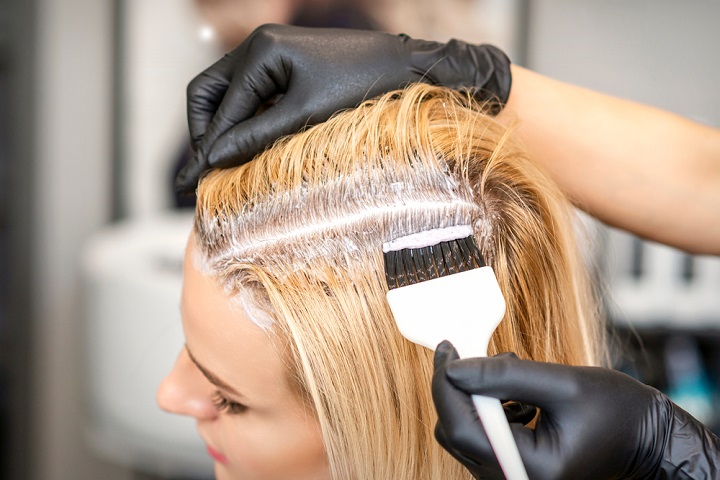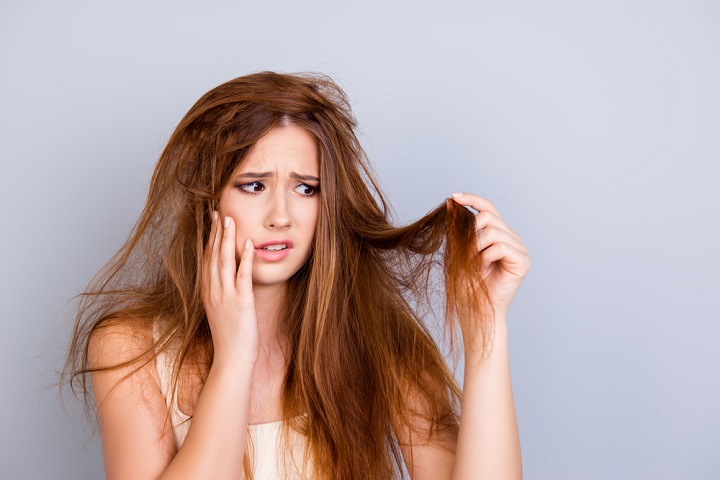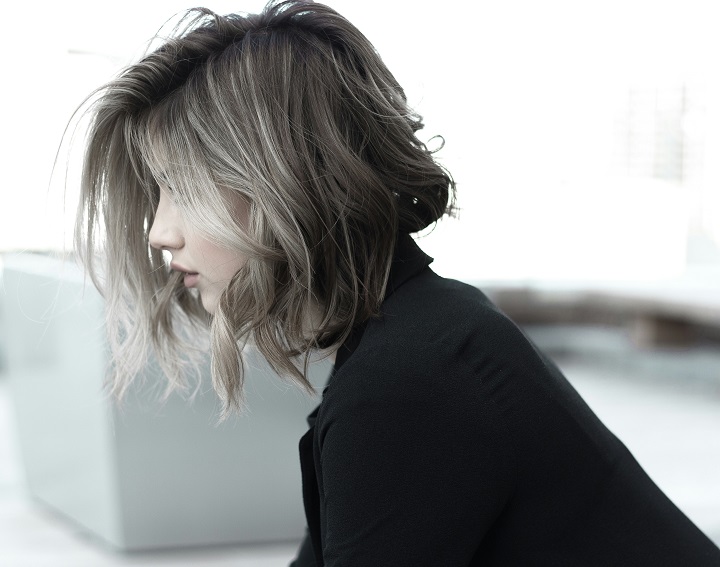In today’s world, at-home hair coloring has become increasingly popular. While convenient and readily available, DIY color jobs often lead to unexpected results, leaving your clients with brassy tones, uneven application or hair that’s much darker than expected.
For stylists, navigating these color correction for your clients challenges requires a skilled approach and in-depth knowledge of how to color correct hair. This article will equip you with the knowledge to tackle the most common hair coloring mistakes. From brassy blondes to stubborn box dye build-up, we’ll explore various scenarios and provide the tools to fix hair color mishaps and restore your clients’ confidence.
Table of Contents
1. Uneven Color Application
Clients often arrive with hair that’s splotchy, patchy, striped or otherwise lacking a cohesive color throughout. This uneven application can make the hair appear dull and lifeless.
Causes
Several factors can contribute to uneven color. Improper sectioning and color placement during application are common culprits. Clients who color their hair at home may rush the process, neglecting to ensure even saturation of the hair strands. Additionally, a lack of experience with color application techniques can lead to inconsistencies.
Solutions
Fortunately, there are several ways to address uneven color application. Highlighting and lowlighting techniques work well to create dimension and blend out patchiness. Glazes or toners applied throughout the client’s hair can even out the overall color and add shine. In stubborn cases, professional hair color removers may provide a solution, but use them cautiously to prevent further hair damage.
2. Brassy Hair After Lightening
Blonde, highlighted or lightened hair often develops unwanted orange or yellow tones, commonly called “brassiness.” This makes hair appear dull and detracts from the desired cool blonde look.
Causes
Brassiness occurs when the lightening process doesn’t include proper toning. Toners deposit cool pigments to neutralize the warm undertones exposed during bleaching. Additionally, using a developer strength that’s too strong can lead to excessive lightening and brassiness.
Solutions
Purple shampoos and conditioners are readily available and formulated with violet pigments to neutralize brassiness. Blue or violet-based toners applied in your salon offer a more professional approach to depositing cool pigments and eliminating brass. Sometimes, overall correction using professional hair color may be necessary.

Source: GLEB_LEVE/Shutterstock.com
3. Hot Roots and Faded Ends
This is a common scenario in which the hair has darker roots that contrast significantly with lighter, faded ends. The overall look can appear unbalanced and neglected.
Causes
Frequent touch-ups focusing solely on the roots without addressing the mid-lengths and ends can lead to hot roots. Using harsh lightening products on already compromised ends can also accelerate fading.
Solutions
Lowlights applied strategically to the mid-lengths and ends create a more blended look and bridge the gap between the dark roots and lighter ends. When applying color to the roots, using a lower developer volume can lead to a softer grow-out, preventing harsh lines of demarcation. Deep conditioning treatments restore moisture and elasticity to the damaged, faded ends.
4. Green or Blue Tints After Bleaching
Sometimes, after bleaching, hair develops an unexpected greenish or bluish cast. Unfortunately, addressing unwanted green or blue tints can be a particularly challenging color correction.
Causes
There are two main culprits for these unwanted tints. Underlying mineral deposits in the hair can react with bleach, causing a greenish cast. And overprocessing bleached hair can lead to a blue or purple hue.
Solutions
Red-based toners effectively neutralize green tones, while orange-based correctors help neutralize blue tones. Before any color correction, use a chelating shampoo to remove mineral build-up that might interfere with the desired outcome.
5. Hair Too Dark After Coloring
Clients often arrive with hair that’s significantly darker than their desired shade after using box color.
Causes
Applying permanent color directly to virgin hair without a strand test is a common mistake. Additionally, miscalculating the color depth during mixing can lead to an unexpectedly dark result.
Solutions
The options for lightening hair that turned out too dark are limited — especially when hair health is already compromised. You can use professional lighteners or hair color removers to lighten the hair a few shades, but you should approach this with caution when dealing with damaged hair. Adding blonde highlights can help break up the darkness and create some dimension, but achieving a dramatic lift may not be possible.
6. Box Dye Build-Up and Damage

Source: Roman Samborskyi/Shutterstock.com
Repeated use of box dyes can lead to dull, lifeless hair that resists color, so people who regularly color their hair at home often end up visiting salons for color correction after a while.
Causes
Box dyes often contain aggressive chemicals that damage the hair over time. Layering box dye colors on top of each other further contributes to the build-up and makes achieving new color goals challenging.
Solutions
Clarifying shampoos can help remove some of the box dye build-up, but be careful when working with damaged hair. Deep conditioning treatments are essential to restore moisture and elasticity. In these cases, opting for gentler coloring options like demi-permanent or semi-permanent colors is recommended. These products deposit less pigment and allow more flexibility in achieving the desired shade.
The Importance of Professional Hair Care Products
Throughout the color correction process and beyond, professional hair care products play a vital role. Here’s how they contribute:
- Color-Safe Shampoos and Conditioners cleanse gently without stripping color vibrancy. They help maintain the hair’s integrity and extend the color correction’s life.
- Deep Conditioning Treatments are crucial for hair that has undergone color correction, which is often compromised and requires intensive moisture replenishment. Deep conditioning treatments help restore elasticity, manageability and shine.
- Bond-building products can benefit hair that has suffered significant damage from previous coloring processes. These products help repair and strengthen the hair’s internal structure, making it more resilient to future coloring services.
Help Fix Color Catastrophes
Color correction can be a rewarding service for both you and your client. By establishing a thorough consultation process, understanding the specific challenges and selecting the most appropriate techniques, you can transform their hair and restore their color confidence. With your expertise and their commitment to aftercare, your clients can finally achieve their dream hair color.

